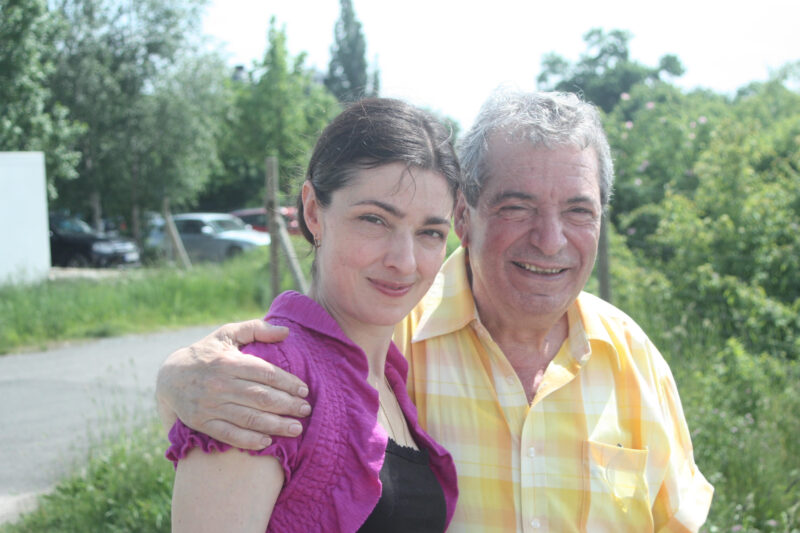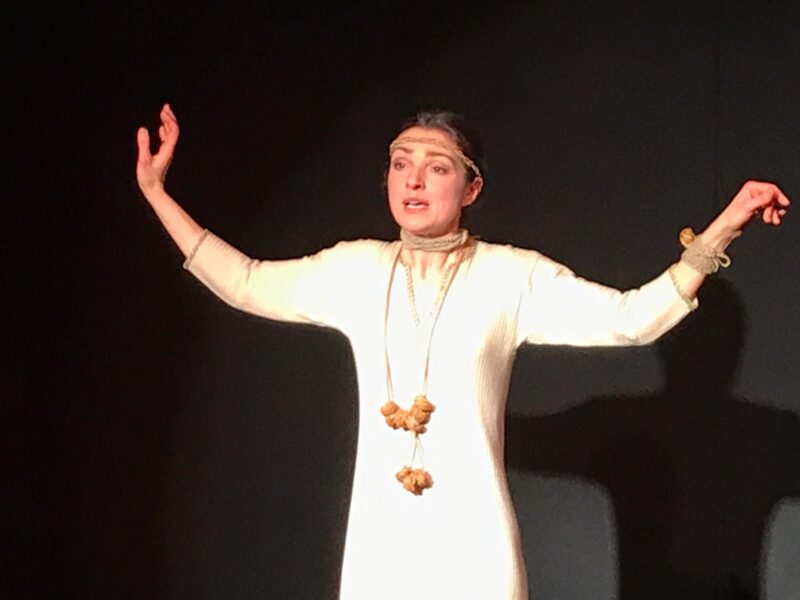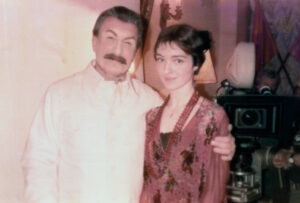You were born in the family of a famous musician and philologist-poet. I believe you grew up in a unique creative atmosphere, right?

My father, George Seropov, was born and raised in Tbilisi. After graduating from music school with a violin lesson, he fell in love with the saxophone and mastered it to perfection independently. He was interested in jazz, admiring the great American musicians, who were his true “hearing” teachers, although absent. He was gifted not only in music, but also in drawing, passed the competition and entered the Georgian Academy of Arts, which was almost impossible for an Armenian at that time. However, the time came when she was faced with the choice between fine arts and music. The music won. In Moscow, Dad worked for many years in the large jazz orchestra of the MosConcert with famous musicians of the time, then in the orchestra of the Old Moscow Circus on Tsvetnoy Boulevard, under the direction of Yuri Nikulin. The conductors were Vladimir Mikhailov and Georgy Garanyan. My mother, Lyubov Seropova (Zhukova), also had a musical background in piano, as did my younger sister, who graduated from the Moscow Conservatory music school. And the spirit of musical culture, the creative atmosphere really reigned in our house, where musicians, some from the artistic world – friends of my father, our family – often gathered. Dad himself was a cheerful man, and regardless of fatigue and mood, he always brought this joy of life with him, as well as his constant humor, jokes, extraordinary stories and his unique kind laughter.
Your father (may he rest in peace!) was a prominent representative of Soviet jazz music. Where did his ancestors come from?
Unfortunately, I don’t know much about the ancestors of my father’s family, I only know that they once lived in Turkey. The notorious period of persecution of Armenians in Turkey, the 1915-16 genocide, also affected my father’s grandparents, who were then forced to flee Turkey with their five children and, via Simferopol, found themselves in Tbilisi. My grandmother, Elena Amayakovna, was a simple and unusually kind woman with an innate sense of intelligence and decency. Sadly, she passed away when I was only eight years old. Some of our relatives on my father’s side still live in Georgia and the rest live in Armenia.
Besides the love of art and beautiful eyes, did your father pass on part of his Armenian heritage to you?
Of course: he passed on to me the love of his roots, of the history of Armenia. I remember with what interest, while still a child, I read about the ancient state of Urartu, and then about the Hellenistic era in Armenia, which subsequently enriched the national culture (for me, for example, it was a interesting fact that the tragedies of Euripides was staged at the Artashat Theater with the participation of Greek and Armenian actors; this really inspired me when I played the Greek Thaïs of Athens in a film), on the ‘Armenia during the adoption of Christianity and the Middle Ages, monuments of its architecture and culture, including the development of fresco and art in general later… Dad took us to relatives in Yerevan and Kirovakan , at the beautiful Lake Sevan… it’s simply impossible to forget these beauties! I think the main thing that my father passed on to me was love and kind respect for decent people, regardless of nationality, hospitality characteristic of Caucasian people, family values… and also a special feeling of pleasure due to the sound of Armenian duduk. In my solo performances “Faith, Hope, Love…And Dream”, a live duduk sounded as a symbol of the eternal wisdom of this wonderful land and its inhabitants. The performance was attended by a wonderful man, a graduate of the jazz department of the School of Music and Theater of the Leipzig Conservatory, a participant in international jazz festivals, a very talented young musician and composer Artyom Sargsyan. During our evening, he played tenor saxophone, flute and duduk. Artyom wrote wonderful music for our play “The Little Prince” and in another play “The View from Above” he successfully presented himself as an actor.
It was interesting to note that in “The Trip to Wiesbaden”, probably the last successful Soviet film-melodrama, the roles of children of an Italian family were played by you and the young Arthur Vardanyan, both of Armenian origin .

Italians and Armenians are very close in appearance and temperament. This is probably why Arthur and I were in high demand in this film, an adaptation of Turgenev’s “Spring Waters” directed by Evgeny Gerasimov. I would also like to say that in 1993 I had the chance to work with the talented Emmy Award-winning Armenian director and screenwriter Boris Hayrapetyan in his film “The Killer”, where, in addition to other wonderful partners, I had the honor to work with Armen Borisovich Dzhigarkhanyan, an extraordinary actor, a unique personality, a wise and infinitely kind person, with whom my family and I were subsequently linked by years of friendship, which I always appreciate it very much.
What is Elena Seropova doing in Germany now and will we ever see her again in the homeland of her father’s ancestors?
Now I’m doing the same thing I’ve always done: playing and teaching. My life is a constant movement. It’s not for nothing that one of my recent performances in Leipzig was called “On the Road”. And wherever this road takes us, we bring the cultural heritage that our great masters left us, and we share it with the members of our studio, the viewers and listeners we love and appreciate. My firm belief: spirituality, culture, art – this is what brings peace and love, awakens human souls from daily routine and negativity. We are currently in Georgia, but life is unpredictable. You know, I have a lot of different blood: Armenian, Russian, Ukrainian and Polish. I am a person of the world. And professionally, I have played a Gypsy, a Hungarian, an Italian, an Azerbaijani, a Tajik, a Greek, a Spaniard, a Georgian, a German, a Ukrainian, a Russian, an American and even an alien in cinema and television. theater, but unfortunately I did not have the opportunity to play an Armenian. Traveling, living and working all over the world, I never forget my roots; it is what gives me strength and motivation in life and an inescapable warmth for my soul. I certainly hope to visit the homeland of my father’s ancestors again one day.


